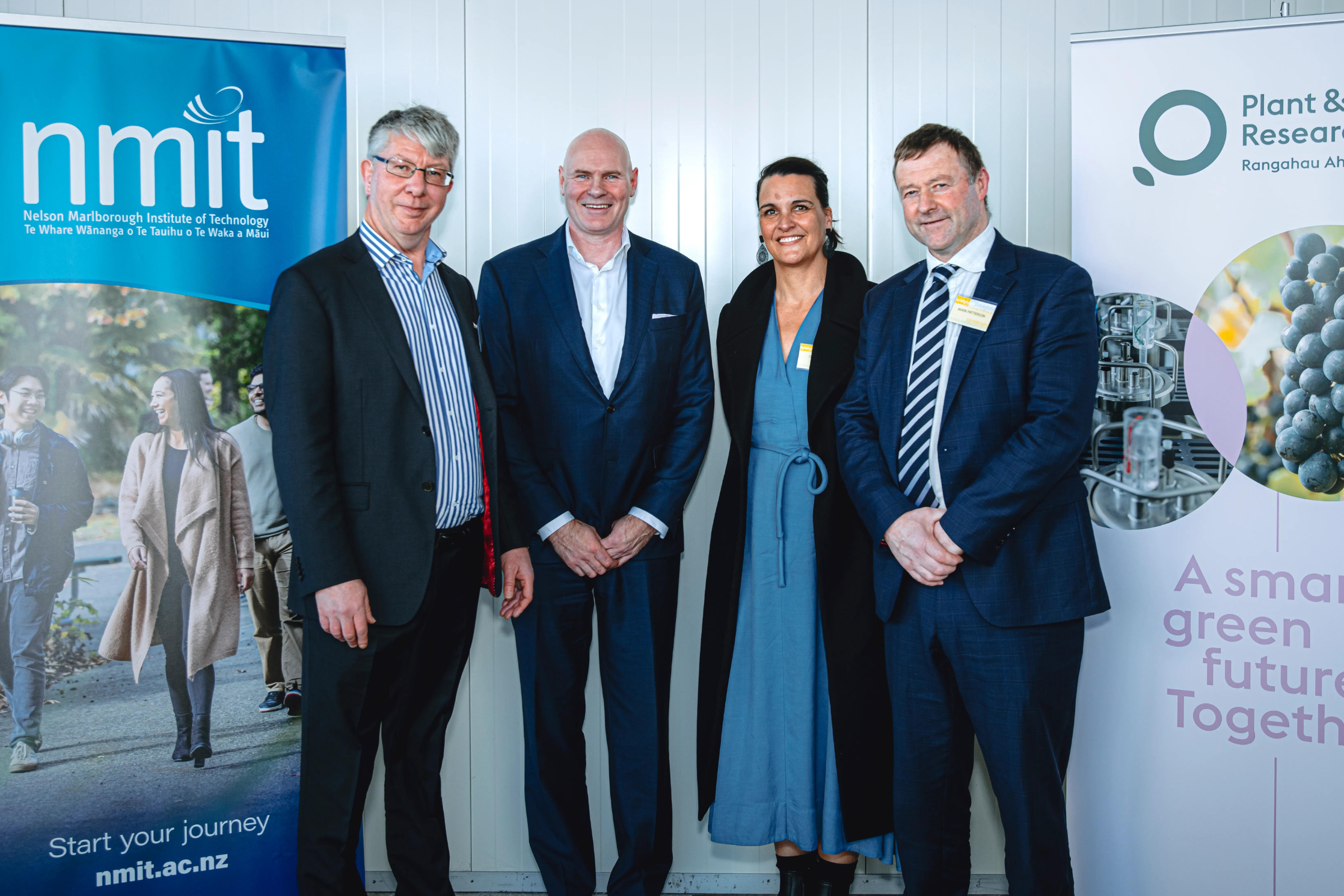
A new experimental facility on NMIT's Blenheim campus will help growers of winegrapes and other perennial crops adapt to the changing climate. NMIT learners will benefit from study and research experiences alongside industry experts.
Te Whenua Tupu, the Living Lab, will allow researchers to study the effect of the environment, both above and below the soil, on growth and development of plants, and develop tools and technologies to help future-proof the horticultural sector.
Situated at the New Zealand Wine Centre Te Pokapū Wāina in Marlborough, the Living Lab is based in a 600m2 shelter with space for 48 full-size potted plants to be grown and studied in a highly-instrumented, highly controlled environment. The facility also includes covered outdoor education spaces, which will support training of students, growers and industry representatives in new growing techniques.
“The Government is keen on an export led economic recovery and doubling exports over the next ten years. There are several ways of doing that but one is a production led approach. The Living Lab is a vital ingredient in improving yields, resilience and profitability for the growers, key components to facilitating export growth,” says John Patterson, Chief Executive Marlborough Research Centre Trust.
Each plant will be fitted with a suite of sensors to allow scientists to study biological processes within the plant, how these are affected by changing the soil and environmental conditions, and how different growing practices influence the development of the plant. New research programmes will be developed by Plant & Food Research in collaboration with the New Zealand wine industry and other horticultural sectors.
“The changing climate adds new challenges to the horticultural sector in New Zealand and globally, and finding new ways to grow crops is vital to future-proof the sector,” says Dr Damian Martin, Science Group Leader Viticulture and Oenology at Plant & Food Research. “This new facility allows us to understand how environment influences the growth of plants down to the cellular level, and helps us develop new tools and technologies to grow our crops in existing or new regions.”
Te Whenua Tupu, the Living Lab, is owned by the Marlborough Research Centre Trust and based at NMIT's Blenheim campus. The experimental facilities are managed by Plant & Food Research, while the teaching annex will be used for industry workshops and for teaching students at NMIT studying viticulture and horticultural production. Development of the new $3.3 million facility was supported by the Ministry of Business Innovation and Employment’s Provincial Growth Fund.
Olivia Hall, Executive Director of NMIT says the hands-on learning and exposure to industry experts is key to building a skilled future workforce.
“Our viticulture and wine-making students benefit from learning in the heart of New Zealand’s winemaking region, and we appreciate the close links we have with local industry. Being based in a functioning research facility, our students will gain real-world experience in research and problem-solving with wine and viticulture experts. This experience sets them up well for careers in the thriving wine industry.”
Te Whenua Tupu, the Living Lab, was officially launched on 26 July 2024 by Associate Minister for Regional Development, the Hon Mark Patterson, at an event attended by local government officials, representatives from the wine and horticulture industry, and staff from the three collaborating organisations.
Learn about our Viticulture and Winemaking programmes


